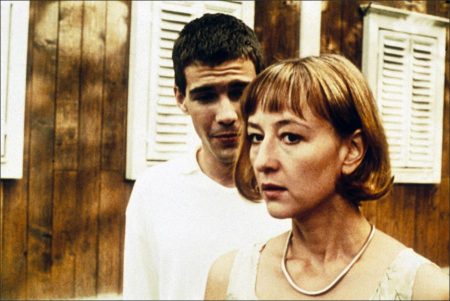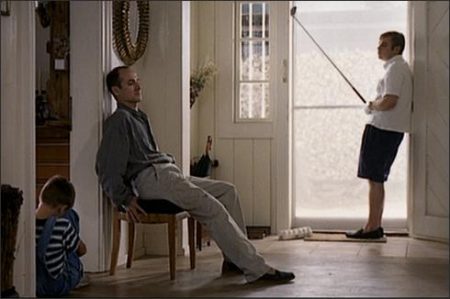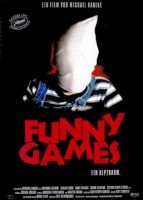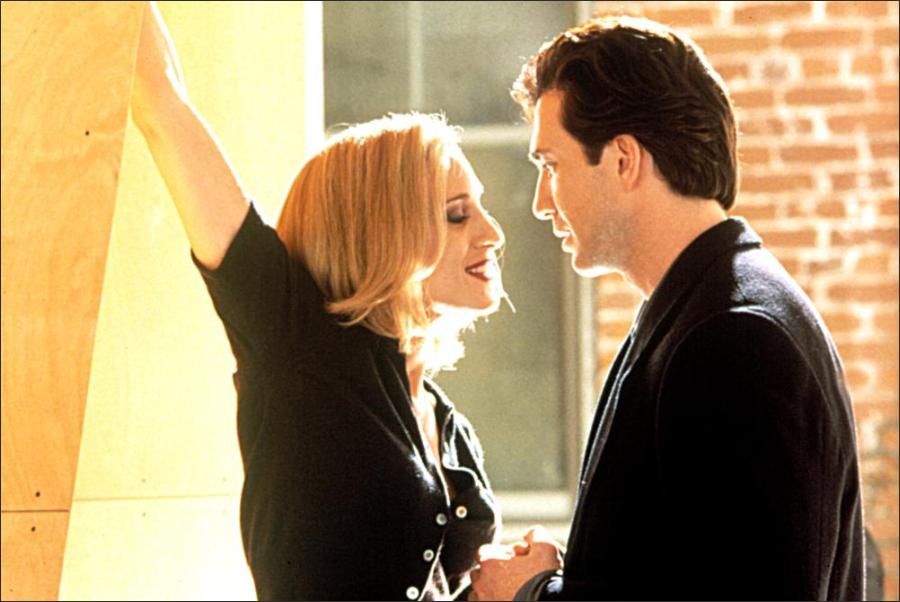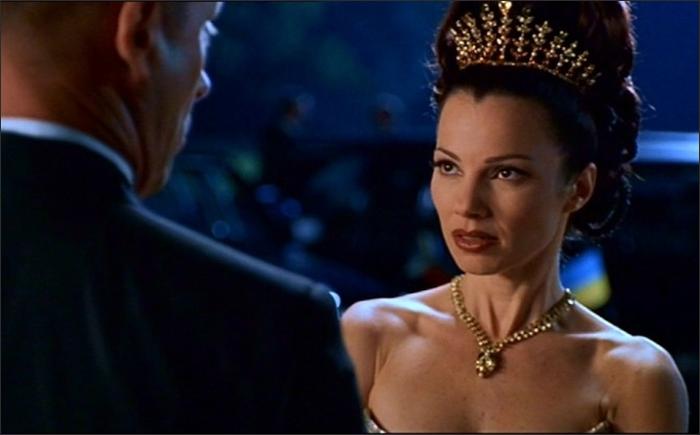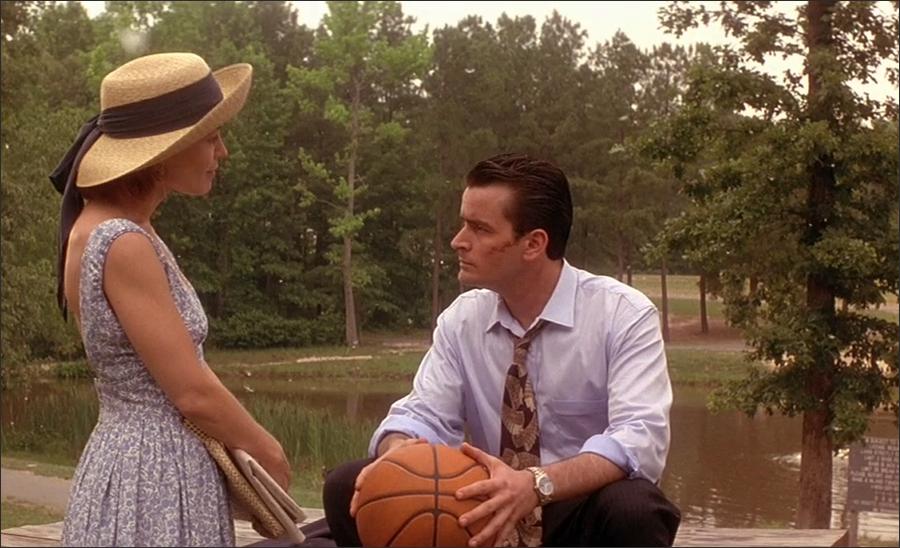Funny Games movie storyline. Georg and Anna, and their son Georgie, are traveling to their lakeside summer home. Upon arrival, Georg and Georgie head off to the lake for sailing while Anna prepares dinner in the kitchen. The serenity is shattered by a young man named Peter, who knocks at the door asking to borrow some eggs. The unwanted visitor is joined by Paul, a brash, arrogant young man.
It soon becomes clear the pair has no intention of leaving. When Georg returns and tries to throw them out, physical violence erupts, and the family is held captive. What ensues are highly disturbing and violent games that are initiated by Paul and Peter with Georg, Anna, and Georgie as the unwilling participants.
Funny Games is a 1997 Austrian psychological thriller film written and directed by Michael Haneke. The plot of the film involves two young men who hold a family hostage and torture them with sadistic games. The film was entered into the 1997 Cannes Film Festival. In 2007 it was remade in America by Haneke, this time with a different cast and a mostly American crew.
Funny Games of Michael Haneke
The film frequently blurs the line between fiction and reality, especially highlighting the act of observation. The character Paul breaks the fourth wall throughout the film and addresses the camera in various ways. As he directs Anna to look for her dead dog, he turns, winks, and smirks at the camera.
When he asks the family to bet on their survival, he turns to the camera and asks the audience whether they will bet as well. At the end of the film, when requesting eggs from the next family, he looks into the camera and smirks again. Only Paul breaks the fourth wall in the film, while Peter makes references to the formulaic suspense rules of traditional cinema throughout the film.
Paul also frequently states his intentions to follow the standards of movie plot development. When he asks the audience to bet, he guesses that the audience wants the family to win. After the killers vanish in the third act, Paul later explains that he had to give the victims a last chance to escape or else it would not be dramatic. Toward the end of the movie, he postpones killing the rest of the family because the movie has not yet reached feature length. Throughout the film, Paul shows awareness of the audience’s expectations.
However, Paul also causes the film to go against convention on a number of occasions. In thrillers, one protagonist that the audience can sympathize with usually survives, but here all three family members die. When Anna successfully shoots Peter, as a possible start to a heroic escape for the family, Paul uses a remote control to rewind the film itself and prevent her action.
After Georgie dies, Paul regrets killing him first because it goes against convention and limits the suspense for the rest of the film. At the end of the film, the murderers prevent Anna from using a knife in the boat to cut her bonds. An earlier close-up had pointed out the knife’s location as a possible set-up for a final-act escape, but this becomes a red herring. At the end of the film, Paul again smirks triumphantly at the audience. As a self-aware character, he is able to go against the viewers’ wishes and make himself the winner of the film.
After killing Anna, Peter and Paul argue about the line between reality and fiction. Paul believes that a fiction that is observed is just as real as anything else, but Peter dismisses this idea. Unlike Paul, Peter never shows an awareness that he is in a film.
Haneke states that the entire film was not intended to be a horror film. He says he wanted to make a message about violence in the media by making an incredibly violent, but otherwise pointless movie. He had written a short essay revealing how he felt on the issue, called “Violence + Media.” The essay is included as a chapter in the book A Companion to Michael Haneke.
Funny Games (1997)
Directed by: Michael Haneke
Starring: Susanne Lothar, Ulrich Mühe, Arno Frisch, Frank Giering, Stefan Clapczynski, Doris Kunstmann, Christoph Bantzer, Susanne Meneghel, Monika Zallinger
Screenplay by: Michael Haneke
Production Design by: Christoph Kanter
Cinematography by: Jürgen Jürges
Film Editing by: Andreas Prochaska
Costume Design by: Lisy Christl
Distributed by: Concorde-Castle Rock / Turner
Release Date: May 14, 1997
Views: 116
